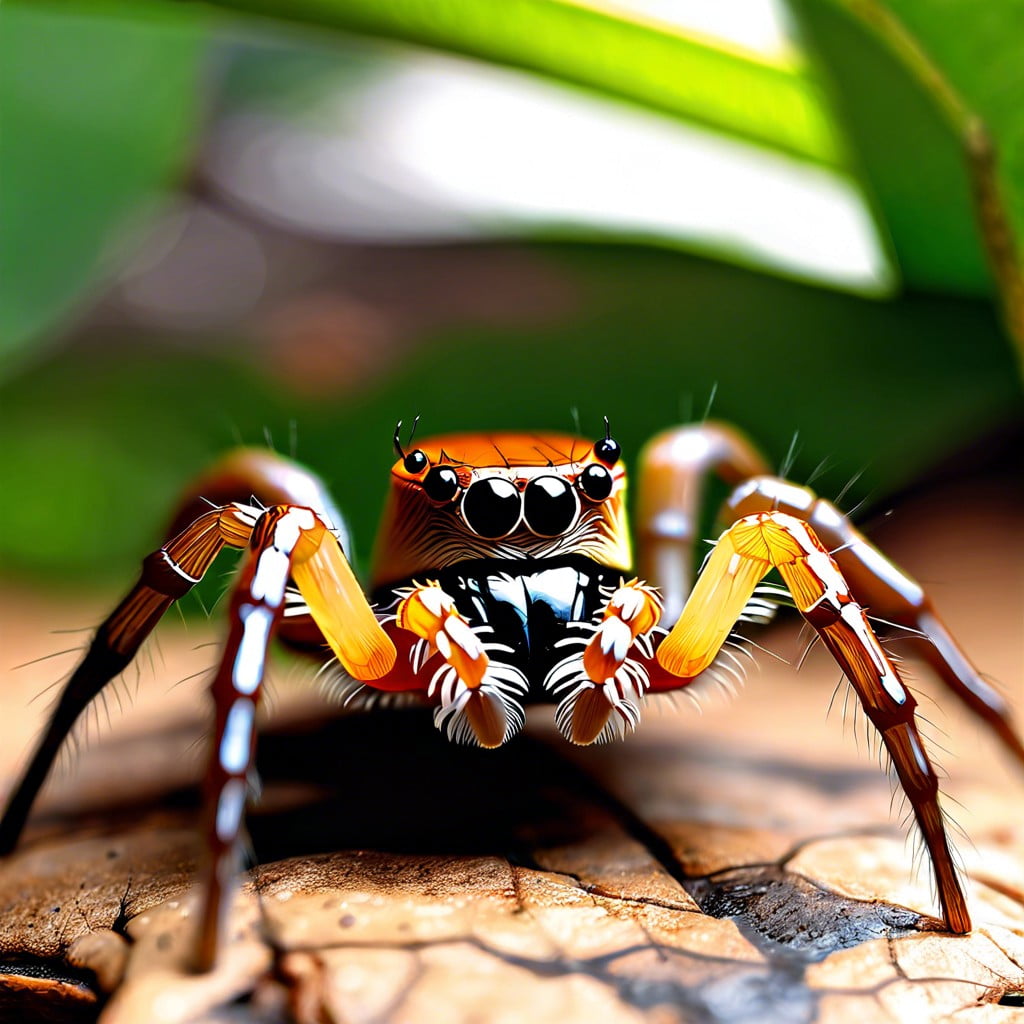Learn how to effectively and safely manage the presence of spiders in your garage with practical solutions and preventive measures.
Key takeaways:
- Understanding common garage spider species
- Comprehensive guide to sealing cracks and entry points
- Implementing natural spider repellents
- Importance of regular cleaning and decluttering
- Step-by-step process to remove spiders
Understanding Common Garage Spider Species

If your garage has become a spider condo, don’t panic! These eight-legged tenants often include cellar spiders, also known as daddy longlegs, who like to hang out in corners. Brown recluses, unassuming in their demeanor, prefer to lay low in undisturbed areas. Black widows, distinguished by a telltale red hourglass, are often unintentional squatters beneath clutter. Jumping spiders might surprise you with their agility, but they’re typically harmless and just visiting. Lastly, the common house spider is, well, just that—common, setting up webs wherever it pleases.
Identifying these species is key to cohabitation or eviction. Cellar spiders and house spiders, while startling, are generally harmless and can even reduce the number of pesky insects in your garage. On the flip side, black widows and brown recluses are more concerning due to their venomous bites. Understanding who’s who in your spider community helps you make informed decisions regarding their stay. Remember, knowledge is power—even when facing a critter showdown in your garage.
Comprehensive Guide to Sealing Cracks and Entry Points
Spiders often slip into garages through tiny cracks and crevices. To thwart their secret entrances, start by conducting a thorough inspection of your garage. Look for gaps around windows, doors, and where utility pipes enter. These are spider highways waiting to be closed off.
For small fissures, caulk works wonders. It fills in the nooks and ensures spiders stay out in the cold. Weather stripping is your ally for sealing spaces under doors and around them. It’s like hanging a “Do Not Disturb” sign for eight-legged wanderers.
Don’t forget the garage door itself. A rubber seal on the bottom can act as a barrier against spiders setting up shop. It’s like pulling up the drawbridge on your personal castle.
Remember, dark corners and places seldom disturbed are spider hideouts. Take time to seal these areas properly and you reduce the chance of unexpected arachnid tenants. Plus, a well-sealed garage is also a more energy-efficient one, hitting two birds with one stone. Keep in mind, persistence pays off. A bi-annual check should keep your garage fortress secure against the tiniest invaders.
Implementing Natural Spider Repellents
Spiders aren’t fans of strong scents. A whiff of peppermint oil might be lovely for us but spiders would rather stay away. Soak cotton balls in peppermint oil and dot them around your garage to create a no-go zone for eight-legged squatters.
Vinegar is another olfactory offense to spiders. Mix equal parts of white vinegar and water in a spray bottle. Give the corners and shadows of your garage a spritz weekly to keep spiders at bay without any chemical warfare.
Citrus peels can double as a fresh-smelling deterrent. Rub orange or lemon peel on the surfaces where spiders frequent. It’s like telling spiders, “Not today!” with every citrusy swipe.
Chestnuts are surprisingly effective at spider deterrence. Place a few on windowsills and near the garage door. It’s like a polite, “Keep out” sign that spiders can’t ignore. Just replace them once they get old and less aromatic.
Lastly, don’t overlook the power of cleanliness. Less clutter means fewer hiding spots for critters. A regular sweep can be as good as rolling out an unwelcome mat for spiders. Keep the dust and debris at bay, and you’ll likely see fewer spider guests.
Importance of Regular Cleaning and Decluttering
Spiders cozy up in garages largely due to the plethora of hiding spots provided by clutter. Boxes stacked in corners and rarely disturbed items create the perfect habitat for these eight-legged tenants. By frequently tidying up and reducing unnecessary storage, you can minimize the nooks and crannies that spiders find appealing.
Dust and cobwebs are more than just unsightly; they’re like welcome mats for spiders. A regular sweep keeps these signals at bay. Don’t overlook the ceiling and less-trafficked zones where webs are most likely to go unnoticed.
Maintaining an organized space not only makes your garage more functional but also less inviting to spiders. Simple measures, like installing shelving units and using airtight containers, can make a significant difference. It’s all about making your garage less of a spider haven and more of a well-oiled, clean machine.
Remember, spiders are in it for the long haul, so consistency is key. A little effort every week is better than a once-in-a-blue-moon overhaul. Keep that broom and dustpan at the ready and show those spiders who’s boss in your garage.
Step-by-Step Process to Remove Spiders
First things first, arm yourself with gloves because you’ll want to keep your hands protected during the eviction process. Next, grab a vacuum with a hose attachment; it’s your best pal for sucking up webs and the eight-legged tenants. Move methodically around your garage—spiders are crafty hiders. Check corners, shelves, and under workbenches.
Once you’ve vacuumed up the visible spiders and webs, it’s time for a bit of spider CSI. Look for egg sacs—these fuzzy, silk balls are spider nurseries. Vacuum them up swiftly to prevent a population boom.
After clearing the spiders, don’t just stash the vacuum away. Empty it outside, away from your garage, to prevent any crafty escapees from returning to the scene. If you’ve got a soft heart for these critters, you can opt for catch-and-release using a jar and a piece of paper—just remember to release them a good distance away from your garage.
Lastly, don’t let down your guard. Regular follow-ups with the vacuum and staying vigilant about sealing off entryways will keep those eight-legged squatters from thinking your garage is a spider hotel. Keep this routine, and your garage will be less of a creepy-crawly hangout.